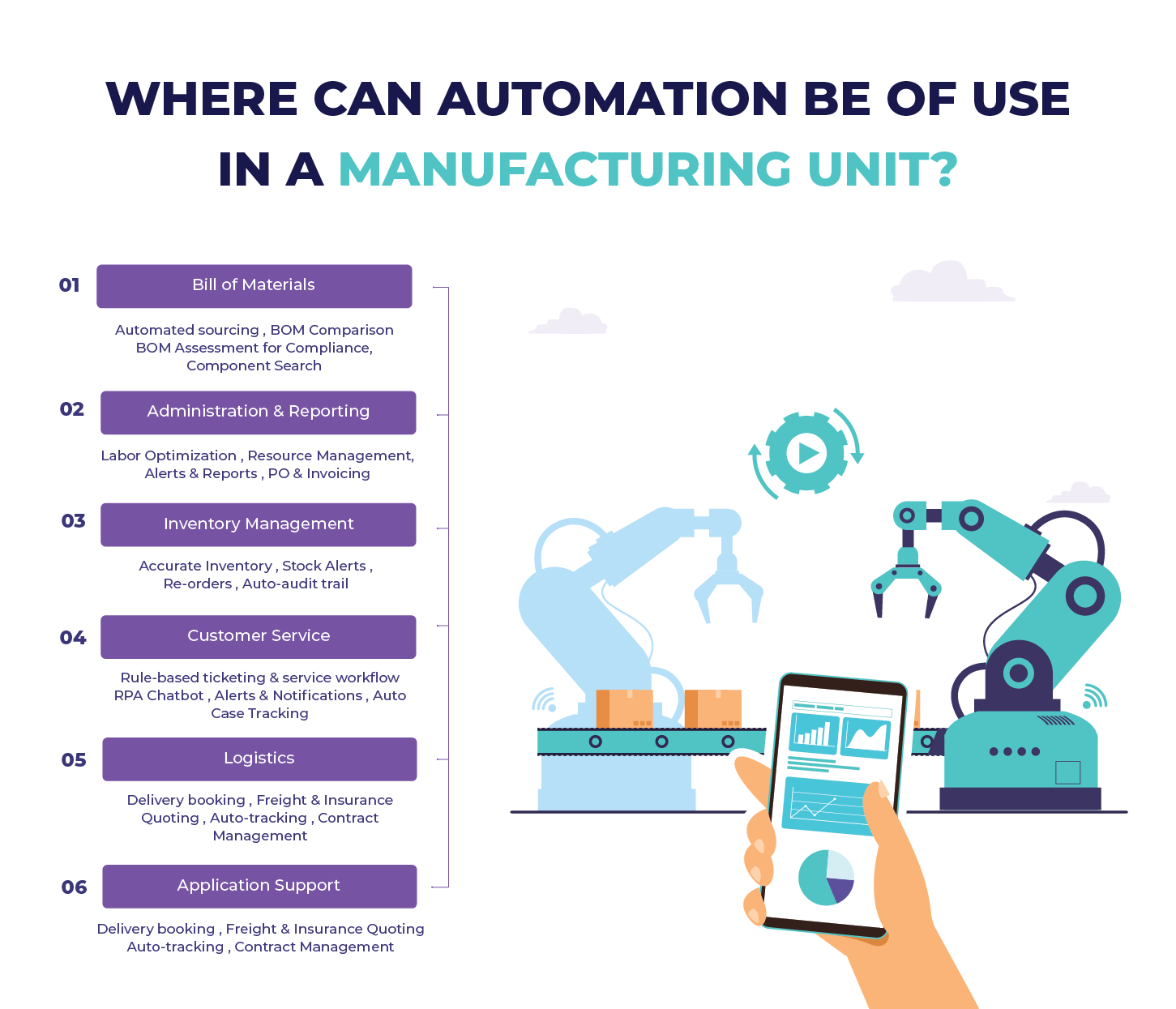1. Maximize Workforce Potential by Freeing Up Human Capital
One of the most underestimated benefits of automation is its ability to realize the true potential of your workforce.
By offloading repetitive, rules-based tasks to bots or automated systems, your skilled employees are empowered to focus on creative problem-solving, innovation, and high-impact decision-making.
For instance, rather than spending hours on data entry or routine quality checks, a production engineer can focus on optimizing assembly workflows or innovating product designs. This shift leads to higher employee satisfaction and better business outcomes.

2. Ensure Consistent, Error-Free Output
Manual intervention in production processes increases the likelihood of errors, inconsistency, and quality variation – especially in high-volume operations.
Automation eliminates variability. Whether it's robotic arms handling precision welding or automated inspection systems using AI for defect detection, automation ensures that quality standards are met every single time.
Consider automated CRM or customer service modules integrated with your manufacturing ERP system. Bots can instantly provide consistent, context-aware responses to customer queries, while flagging complex issues for human intervention – a seamless blend of speed and personalization.
3. Accelerate Lead Times Across the Supply Chain
Speed is a competitive advantage. With automation handling critical but time-consuming tasks – such as order management, inventory updates, dispatch scheduling, and returns processing – your production cycles become leaner and more responsive.
Reduced manual intervention translates to faster time-to-market, helping you meet delivery deadlines and improve customer satisfaction.
A well-integrated automation system also facilitates real-time visibility across your supply chain, making it easier to anticipate delays, reallocate resources, and reduce bottlenecks.
Realize these benefits today!
4. Cut Long-Term Costs and Minimize Operational Risks
Many manufacturers hesitate to invest in automation due to upfront costs. However, the cost of not automating often proves to be far higher.
Manual operations are susceptible to:
- Human error
- Workforce attrition and training overheads
- Compliance violations
- Inconsistent outputs
- Inability to scale without adding headcount
Automated systems, by contrast, are scalable, reliable, and available 24/7, with minimal downtime and reduced maintenance once properly configured.
5. Build a Future-Ready Manufacturing Operation
The next logical step after understanding the benefits of automation is assessing its feasibility within your specific business environment.
Common entry points include:
- PO Validation Automation: Automatically match purchase orders with invoices and delivery receipts to avoid payment errors.
- Invoice Processing Automation: Reduce processing time by extracting invoice data using AI/ML and integrating with your ERP.
Your automation investment depends on your current process maturity, systems in place, and the scope of transformation you’re aiming for. The good news? Most modern automation platforms offer modular deployments, so you can start small and scale up.

